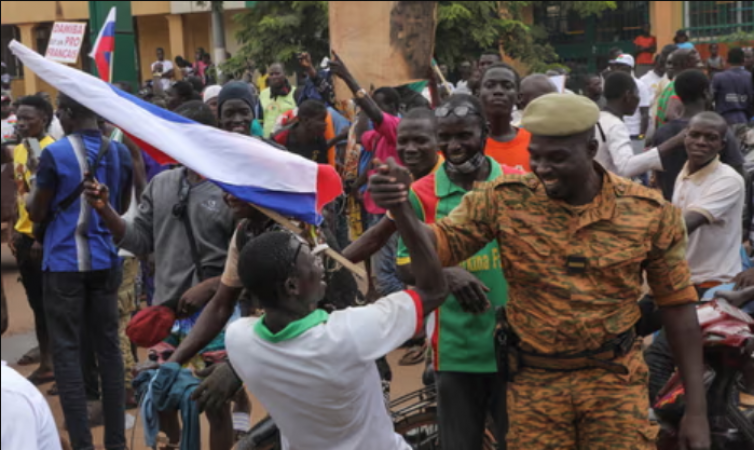
Ouagadougou: In a noteworthy development, a Russian delegation recently engaged in discussions with Burkina Faso's interim president, Ibrahim Traore. The meeting, which took place in Ouagadougou, included deliberations on potential military collaboration between the two nations.
The visit, spearheaded by Russian Deputy Defense Minister Yunus-Bek Yevkurov, follows up on prior talks between President Traore and Russian President Vladimir Putin during the Russia-Africa summit held in St. Petersburg in July.
This diplomatic exchange holds significant implications, as Burkina Faso's relationship with Moscow has garnered attention since it expelled French troops from its territory in February.
Also Read: Electrifying Debut: MINI's Next-Gen Cooper and Countryman EVs Set to Shine on September 1
The expulsion has sparked speculation about the country's intention to forge closer security ties with Russia, mirroring its neighbor Mali, where Russian Wagner mercenaries are known to operate.
The discussions during the meeting encompassed a range of cooperative possibilities, with a primary focus on the military sphere. Notably, the statement released by the Burkinabe presidency highlighted potential collaborations related to military training.
The cooperation envisaged includes the training of Burkinabe officer cadets and officers across all levels, including pilots, within Russia. Although the statement did not explicitly mention the dispatch of Russian military trainers to Burkina Faso, the implications suggest a commitment to enhancing the country's military capabilities.
This engagement signifies a notable step forward in bilateral relations, suggesting a growing willingness to explore avenues of cooperation beyond the diplomatic sphere.
The potential for military collaboration is particularly significant in the context of Burkina Faso's security concerns and the need to bolster its defense capabilities.
Also Read: Japan's Economic Growth Slows to 0.5% in Q2 2023 Amidst Complex Challenges
The country has faced persistent challenges related to extremist activities and terrorism, necessitating efforts to fortify its security apparatus.
The visit by the Russian delegation holds wider implications for Moscow's interests in Africa, particularly in the wake of the passing of Yevgeny Prigozhin, the influential figure behind the Wagner Group.
Prigozhin's efforts had led to the establishment of a network of interests spanning multiple African countries and beyond. With his demise, there is an emerging vacuum that Russia may seek to address by strengthening its influence on the African continent.
While the specifics of potential military cooperation are yet to be fully disclosed, the trajectory suggests a growing alignment of interests between Burkina Faso and Russia.
The strategic maneuvering on both sides signals a willingness to forge closer ties, which could extend beyond security matters into economic and geopolitical domains.
It is worth acknowledging that the talks come at a juncture when geopolitical dynamics in Africa are undergoing shifts. Traditional players, such as former colonial powers, are facing challenges to their dominance, paving the way for new entrants to exert their influence.
Russia's efforts to cultivate relationships in Africa, as evidenced by this engagement, are part of a broader strategy to establish a foothold and expand its presence on the continent.
As both parties continue to deliberate and chart the course of their relationship, the potential benefits and risks associated with increased Russian involvement in Burkina Faso warrant careful consideration.
While military cooperation could enhance Burkina Faso's security capacity, it also opens the door to complexities that must be managed judiciously.
Also Read: US Signals Implicit Recognition of Taiwan Sovereignty with Landmark Weapon Sale
In conclusion, the talks between the Russian delegation and Burkina Faso's interim president signify a significant step toward potential military cooperation.
This engagement underscores the evolving dynamics of global influence and the reconfiguration of traditional alliances. As both nations navigate the complexities of collaboration, it is imperative to prioritize transparency, mutual benefit, and a comprehensive understanding of the long-term implications.
While military cooperation may hold promise for addressing security challenges, a holistic approach is needed to ensure that the partnership contributes positively to the stability and development of Burkina Faso and the broader region.